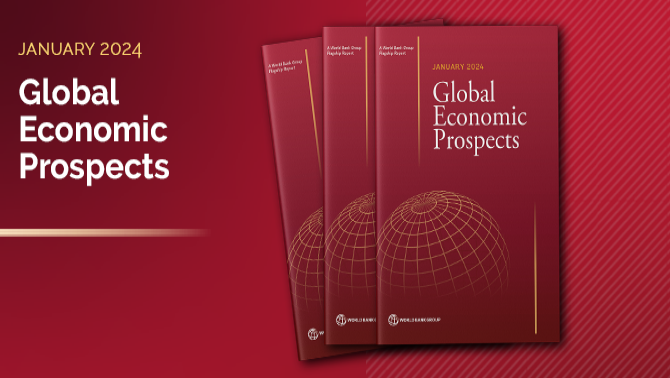- Messages
- 6,746
Do members here feel or sense a real downturn in financial markets this year, off the back of Covid/rising inflation tackling measures?
WASHINGTON, Jan. 9, 2024— As the world nears the midpoint of what was intended to be a transformative decade for development, the global economy is set to rack up a sorry record by the end of 2024 —the slowest half-decade of GDP growth in 30 years, according to the World Bank’s latest Global Economic Prospects report.
By one measure, the global economy is in a better place than it was a year ago: the risk of a global recession has receded, largely because of the strength of the U.S. economy. But mounting geopolitical tensions could create fresh near-term hazards for the world economy. Meanwhile, the medium-term outlook has darkened for many developing economies amid slowing growth in most major economies, sluggish global trade, and the tightest financial conditions in decades. Global trade growth in 2024 is expected to be only half the average in the decade before the pandemic . Meanwhile, borrowing costs for developing economies—especially those with poor credit ratings—are likely to remain steep with global interest rates stuck at four-decade highs in inflation-adjusted terms.
Global growth is projected to slow for the third year in a row—from 2.6% last year to 2.4% in 2024, almost three-quarters of a percentage point below the average of the 2010s. Developing economies are projected to grow just 3.9%, more than one percentage point below the average of the previous decade. After a disappointing performance last year, low-income countries should grow 5.5%, weaker than previously expected. By the end of 2024, people in about one out of every four developing countries and about 40% of low-income countries will still be poorer than they were on the eve of the COVID pandemic in 2019. In advanced economies, meanwhile, growth is set to slow to 1.2% this year from 1.5% in 2023.

WASHINGTON, Jan. 9, 2024— As the world nears the midpoint of what was intended to be a transformative decade for development, the global economy is set to rack up a sorry record by the end of 2024 —the slowest half-decade of GDP growth in 30 years, according to the World Bank’s latest Global Economic Prospects report.
By one measure, the global economy is in a better place than it was a year ago: the risk of a global recession has receded, largely because of the strength of the U.S. economy. But mounting geopolitical tensions could create fresh near-term hazards for the world economy. Meanwhile, the medium-term outlook has darkened for many developing economies amid slowing growth in most major economies, sluggish global trade, and the tightest financial conditions in decades. Global trade growth in 2024 is expected to be only half the average in the decade before the pandemic . Meanwhile, borrowing costs for developing economies—especially those with poor credit ratings—are likely to remain steep with global interest rates stuck at four-decade highs in inflation-adjusted terms.
Global growth is projected to slow for the third year in a row—from 2.6% last year to 2.4% in 2024, almost three-quarters of a percentage point below the average of the 2010s. Developing economies are projected to grow just 3.9%, more than one percentage point below the average of the previous decade. After a disappointing performance last year, low-income countries should grow 5.5%, weaker than previously expected. By the end of 2024, people in about one out of every four developing countries and about 40% of low-income countries will still be poorer than they were on the eve of the COVID pandemic in 2019. In advanced economies, meanwhile, growth is set to slow to 1.2% this year from 1.5% in 2023.

Global Economy Set for Weakest Half-Decade Performance in 30 Years
As the world nears the midpoint of what was intended to be a transformative decade for development, the global economy is set to rack up a sorry record by the end of 2024—the slowest half-decade of GDP growth in 30 years, according to the World Bank’s January 2024 Global Economic Prospects report.
www.worldbank.org

